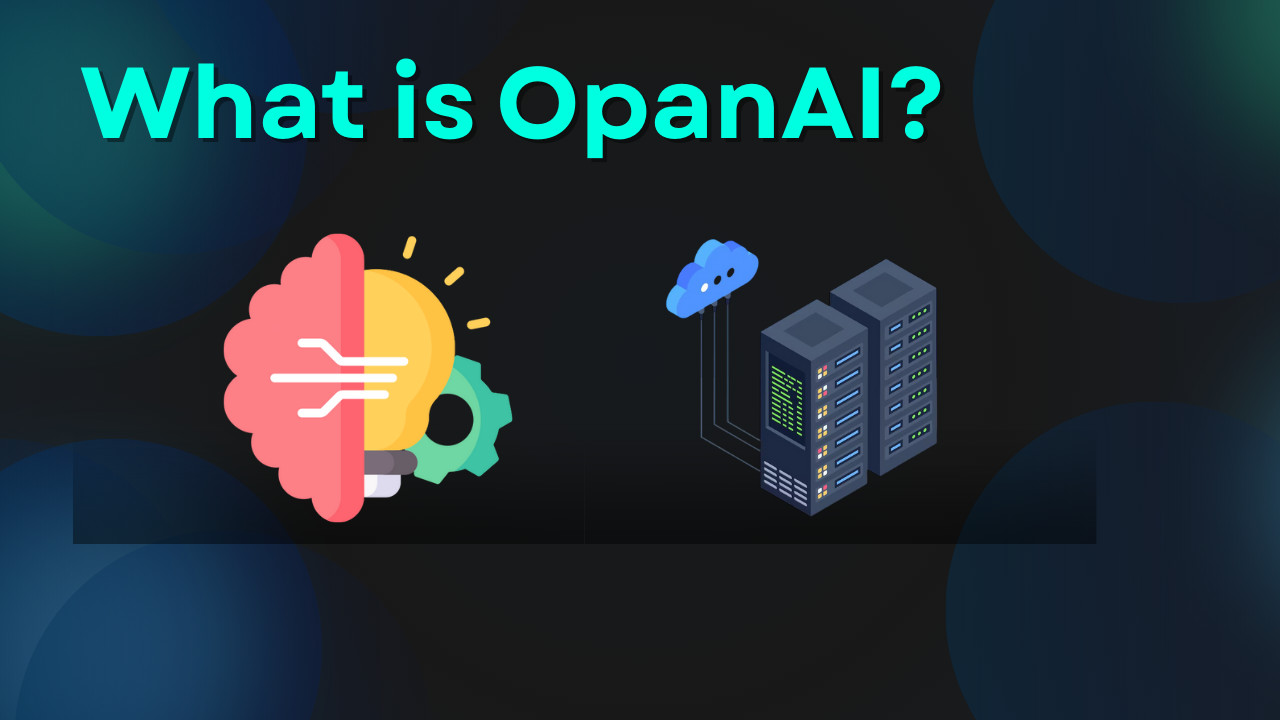What is OpenAI? & How does it work?
OpenAI is an artificial intelligence research organization best known for creating tools like ChatGPT.
artificial intelligence (AI) is rapidly transforming the way people engage with technology. A branch of this field, known as generative AI , focuses on creating new content such as text, images, or audio based on human instructions, often given in natural language. For instance, if you ask ChatGPT to “rewrite the story of Little Red Riding Hood in 500 words,” it will generate a version that follows your request by drawing on the data and patterns it has been trained on.
OpenAI, the organization behind ChatGPT , is an AI research company that has developed a range of innovative services. Its stated mission is to advance AI in ways that benefit humanity as a whole. In the sections ahead, we’ll look at OpenAI’s background, its achievements, and the advantages and challenges of its technologies. If you’d like to deepen your understanding of how to use ChatGPT effectively, you may also explore Vanderbilt University’s Prompt Engineering Specialization.
What is OpenAI?
OpenAI is both an artificial intelligence company and a research laboratory, dedicated to developing AI in ways that benefit all of humanity . Initially founded as a non-profit, the organization was established out of concern that advanced AI could be misused or lead to harmful consequences if left unchecked. To support its mission, a group of investors contributed $1 billion , enabling OpenAI to conduct research and provide resources that are openly accessible to the public.
OpenAI: Timeline and Historical Overview
OpenAI was established in 2015 with the goal of creating AI and machine learning tools for a wide range of applications. Its first release, OpenAI Gym, was an open-source toolkit designed for building and testing reinforcement learning algorithms. This project helped shape OpenAI’s broader focus on advancing general purpose AI research.
In 2018, the organization introduced the Generative Pre-trained Transformer (GPT), a neural network model inspired by the structure of the human brain and trained on large datasets. Building on this foundation, OpenAI launched DALL·E in 2021, a generative model capable of creating images from text prompts. The following year, in November 2022, ChatGPT was released quickly becoming the most widely used chatbot and generative AI tool, known for producing everything from conversation responses to resumes and survey questions.
OpenAI regularly refines and expands its large language models (LLMs) to enhance accuracy, speed, and overall performance. As of March 2025, the company provides a diverse lineup of GPT models, including:
- GPT-4.5 – Currently available as a research preview, this is OpenAI’s most advanced and largest model so far, designed to excel at creative and open-ended tasks.
- GPT-4o – The flagship model, well-suited for handling complex, multi-step problems.
- GPT-4o mini – A lightweight, cost-effective version of GPT-4o, optimized for fast and simple tasks.
- o1-preview and o1-mini – Models trained with reinforcement learning to tackle more sophisticated reasoning challenges.
- GPT-4 Turbo and GPT-4 – Earlier flagship models offering strong general knowledge and reasoning capabilities.
- GPT-3.5 Turbo – A budget-friendly option often used for basic, straightforward tasks.
1. Who are the founders of OpenAI?
OpenAI began with a non-profit ownership model but has since transitioned into a for-profit business structure. It was founded by a group of research engineers and scientists, with early funding from well-known entrepreneurs including Elon Musk ( Tesla , SpaceX ), Sam Altman ( OpenAI’s current CEO ), Reid Hoffman ( LinkedIn co-founder ), Peter Thiel ( PayPal co-founder ), among others.
Today, Microsoft stands as one of OpenAI’s largest backers and stakeholders. While several early investors remain connected to the company, Elon Musk departed in 2018 and later went on to establish his own AI venture, xAI .
OpenAI products and releases
Large language models (LLMs) enable a wide variety of applications, from text generation to video creation and audio transcription. Building on these capabilities, OpenAI has developed several key products and services, including:
- ChatGPT – An AI chatbot that produces text-based responses to questions and prompts. Trained on large datasets, it mimics the experience of human conversation.
- DALL·E 3 – An image generation tool that creates visuals based on text prompts. For instance, you could request, “paint a cat in Surrealist style,” and it will generate a matching image.
- Codex – A code-focused model trained on vast amounts of programming data. It assists developers by generating and simplifying code across multiple programming languages.
- Whisper – An automatic speech recognition (ASR) system trained on multilingual audio datasets, capable of both transcription and translation of spoken language.
- Scholar – A program designed to support students and researchers working on AI-related projects, occasionally offering financial assistance.
- OpenAI Gym – A toolkit that provides resources for developing and testing reinforcement learning algorithms.
- OpenAI API – A comprehensive developer platform that integrates many of OpenAI’s models and services, making it easier to build and deploy AI-powered applications.
2. Introduction to OpenAI for Beginners
Discover how to use the OpenAI API to programmatically prompt a model and enhance a dataset of a user’s movie collection. By leveraging the model, you can input details like genre, director, and plot summaries, then automatically generate meaningful additions. This hands-on project will help you sharpen your skills and create a portfolio-ready piece in just two hours.
Advantages and Drawbacks of OpenAI Products and Services
Generative AI represents a cutting-edge technology that brings significant advantages as well as notable risks for both individuals and organizations. Consequently, OpenAI has been the subject of both acclaim and criticism from the public and technology experts. Below is an overview of the key benefits and challenges associated with OpenAI’s products.
Benefits
OpenAI products, such as ChatGPT, when applied effectively, can enhance daily professional tasks by delivering accuracy and efficiency through AI-driven solutions.
- Save time: Machine learning models can automate tasks like text, image, and voice recognition, freeing up valuable time. For example, instead of drafting 20 unique survey questions from scratch, a user can focus on refining and editing them. Similarly, software developers can devote more attention to improving app functionality rather than repetitive tasks.
- Save money: By automating processes, OpenAI can reduce labor costs. For instance, tasks such as manually tagging user uploaded photos something that would otherwise demand a large workforce can be managed by AI systems.
- Gain insights: Through predictive analytics, OpenAI tools can process massive datasets to uncover actionable insights. These insights help organizations better understand user behavior, optimize engagement, and elevate products or services from good to exceptional.
Drawbacks and criticism
The limitations of OpenAI reflect broader concerns that apply to artificial intelligence as a whole, particularly when issues of ethics and bias are taken into account.
- Ethical concerns: OpenAI faced criticism after transitioning from its original non-profit model in 2019. Many questioned whether the organization’s shift indicated participation in the race to commercialize advanced AI leveraging knowledge and research initially developed under a non-profit mission for profit-driven purposes.
- Accuracy issues: Products like ChatGPT rely on data from the open web, which may be outdated or influenced by bias. This raises questions about the system’s ability to distinguish fact from misinformation, stereotypes, or unreliable sources.
- Safety risks: Instances of harmful or toxic content have emerged through OpenAI’s platforms, including instructions on dangerous activities such as constructing explosives or engaging in theft. These examples highlight concerns about misuse and content moderation.
- Legal challenges: OpenAI’s data practices have drawn scrutiny from government regulators. Lawsuits have been filed over the legality of sourcing data and using copyrighted material, with ongoing efforts to safeguard the intellectual property rights of authors, artists, and other creators.
Edit Profile
Help improve @KR

Was this page helpful to you?
Contact Khogendra Rupini
Are you looking for an experienced developer to bring your website to life, tackle technical challenges, fix bugs, or enhance functionality? Look no further.
I specialize in building professional, high-performing, and user-friendly websites designed to meet your unique needs. Whether it’s creating custom JavaScript components, solving complex JS problems, or designing responsive layouts that look stunning on both small screens and desktops, I can collaborate with you.
Create something exceptional with us. Contact us today
Open for Collaboration
If you're looking to collaborate, I’m available for a variety of professional services, including -
- Website Design & Development
- Advertisement & Promotion Setup
- Hosting Configuration & Deployment
- Front-end & Back-end Code Implementation
- Code Testing & Optimization
- Cybersecurity Solutions & Threat Prevention
- Website Scanning & Malware Removal
- Hacked Website Recovery
- PHP & MySQL Development
- Python Programming
- Web Content Writing
- Protection Against Hacking Attempts
